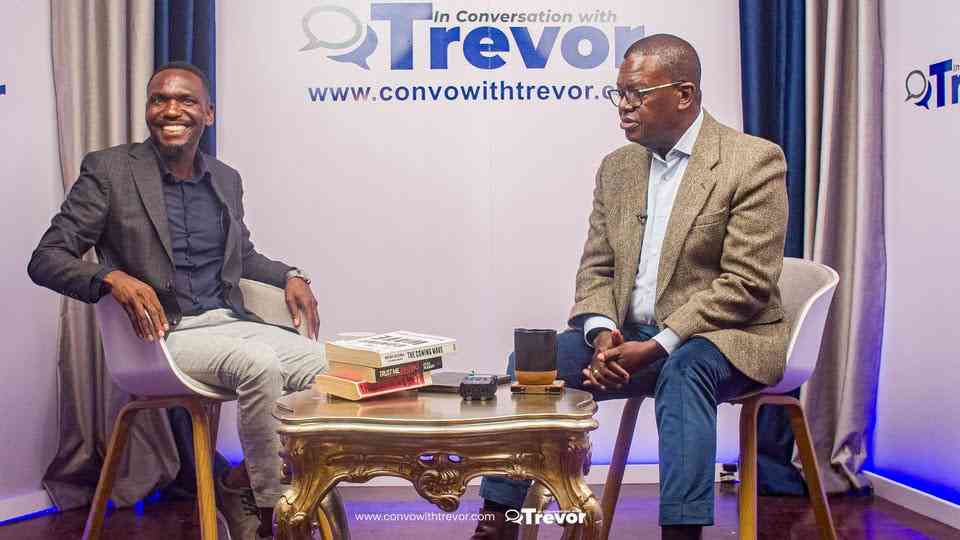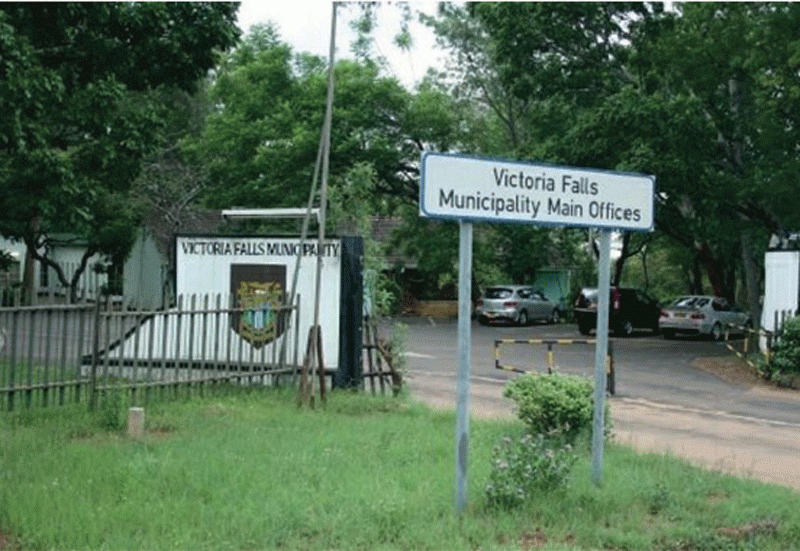
Senior Alpha Media Holdings and HStv journalist Blessed Mhlanga says he used the 72 days he spent at Harare Remand Prison to study law and believes he received practical lessons during his stint behind bars.
Mhlanga (BM), who was arrested in February after HStv broadcast press statements addressed by former Zanu PF central committee member Blessed Geza calling for President Emmerson Mnangagwa to step down, shared his experience in prison on the platform In Conversation with Trevor hosted by Alpha Media Holdings chairman Trevor Ncube (TN).
Below are excerpts from the interview.
TN: Greetings, Welcome to In Conversation with Trevor. Today, I’m in conversation with Blessed Mhlanga, senior journalist with the HStv and AMH.What is it like to be outside?
BM: It was an experience, Trevor, it was an experience that went too long as well, but interesting, there›s a lot of stuff to unpack there.
TN: So, to take me to day 72, day 73, when you begin to receive the news that finally the court has decided to allow you to get outside, talk to us about what goes through your mind.
In that particular moment, there were delays. What did that do to you? Take us into your mind.
BM: So, Trevor, what had happened is that on day 72, that›s where the hearing of the bail application was. My wife had visited prison the day before.
- Letter to my people: The experiment has failed spectacularly
- Village Rhapsody: Zimbabwean journalists under siege
- AMH journalists arrested
- Letter to my people: The experiment has failed spectacularly
Keep Reading
I told her not to go to court. I told my lawyers that I didn’t want to go to court because there had been a challenge in filing our appeal.
So, my lawyers filed that appeal and it was rejected at the High Court and when they inquired, they were told that they were supposed to use the old case number.
And my lawyer was, no, look, we filed the first bail appeal because it was a bail appeal. It was a different case dealt with by a different judicial officer.
Then we filed this one, a bail appeal on changed circumstances.
So the idea was to take it back to the judge who had denied me bail in the first instance because if it was an old case, then it would be a continuing case.
So in my mind, after applying my mind clearly, I felt that, you know what, this is just going to be another bail denied.
So I told my lawyer, I don’t want to go there, and I told my wife to stay at home because I had lost hope that I was ever going to get bail.
So nobody from my family went.
I also didn’t go to court because at that time I was also not really feeling well.
In the past, I had forced myself to go to court even when I was not feeling well.
So, when I was told by other people who had gone to court, who were in that court, who were prisoners that I was given bail, I thought they were joking. I just brushed it off.
So I was just in disbelief. And in the afternoon, my wife came and told me of the challenges they were going through and I told her, look, don’t stress, let them take their time, because they have taken their time this far.
So I was indifferent. And when I finally got out, there were a lot of people by the gate.
And for some reason, the Zimbabwe Prisons and Correctional Services decided to smuggle me out of prison from a different gate, not the normal gate that people use.
So I had to walk around the prison.
TN: Why?
BM: I don't know. Well, it was not explained to me.
TN: Talk to me about you sitting there, you getting frustrated, you said you are losing hope. You didn’t want to go to court.
You didn’t want your wife to go to court.
What do you think is happening out there? Who is playing, who is manipulating this whole process?
What’s happening as far as your own understanding?
BM: I lost hope in the system, but I didn’t lose hope. I had my books. I was studying.
I was reading through constitutional law. And the things that I was reading, you know, I say this to the other guys, I just hope the university can give me a distinction, because I actually did a practical.
I actually did a practical because I started constitutional law on a practical level when I was in prison.
I actually drafted my own Constitutional Court application to challenge the constitutionality of the law after having read books. I studied with intention.
I also studied criminal law, the Criminal Codification Act, which I was supposed to write, criminology and criminal law.
I studied on a practical basis.
I spoke to inmates who told me their cases, and then I would go to the criminal code, look at them, look at the defences that were available for them.
And I would talk to them and show them what they were supposed to do.
And I also even helped about eight to 10 people who didn’t afford lawyers to write for them their bail application, and of the eight, seven succeeded.
So I didn’t lose the opportunity.
TN: Sounds like you were on a study leave.
BM: Certainly I was. I mean, I did a practical in those courses, a serious practical, and it led me to come to a conclusion that I think anyone who wants to be a lawyer, who wants to be a magistrate, wants to be a judge, must spend a week in a prison so that they honestly understand the conditions in prison.
When you are a magistrate, you are condemning someone to the remand prison, even without looking at the fix.
When you are a judge and a bail application is before you, you honestly understand the conditions, you honestly understand a whole lot of things, so I think that’s important.
A lot of people have failed to get out on bail on the same day because of those mistakes.
So I had come to be accustomed to it. For the 73 days that I was there, over 10 to 15 people, their names are misspelt…..
TN: They are seeing a number missing. What does this tell you about our legal system, our judicial system?
BM: Trevor, the biggest problem in my view is that our system is not computerised.
From prison, it’s manual. You have warrants that are written manually. You have tickets that are brought in manually.
You have the judicial, the high court is the one that is in EMS. So something gets lost along the way.
It would be very simple for instance, our arrangement of prisons to be computerised and when something happens in the High Court, they are picking it not from the papers that are filed, but from the system that’s already in the...
TN: You remind me, we visited you twice once with my wife and the other time I couldn’t believe that when you get to the gate, they write on pieces of papers, on cardboard boxes and then give you this piece of paper to go.I mean, I’m like, is this a country? Is this a banana republic? What’s happening here?
BM: Trevor, that’s just the easy part. So in that piece of paper comes, it’s given to a prisoner that runs with it to prison and he goes floor by floor because there are three floors, floor by floor calling the name.
Then they give you the piece of paper and that’s the piece of paper that they could have just put into court in the prison.
TN: So you covered two stories, the Blessed Geza interview and you covered the POSB attempted heist.
A lot of people suspect it’s the Blessed Geza interview that created your problems. I think your story, the HStv story on the attempted heist at the POSB is what caused problems for you. This is my own reading and my reading is that you upset people in the Attorney General’s Office, who had an interest in stealing POSB from the people and taxpayers.
Have you reflected on that?
BM: So, my apologies to everyone I upset.
This is not my intention. When we do stories, we do this for public good.
I was never arrested for interviewing Geza. I didn’t say anything at the (Blessed Geza) press conference.
I was arrested for transmitting it, for crying out loud for transmitting it. I am not a transmitter. HStv is the one that is licensed to transmit. It’s the one that was given a license to transmit.
HStv does not belong to me. It doesn’t even belong to the shareholder, it belongs to the people.










